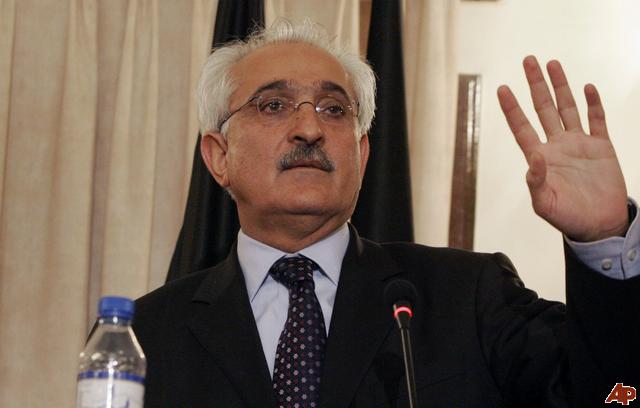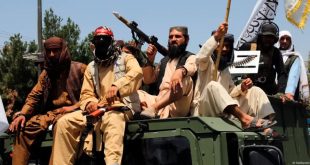A full excerpt of Dr. Rangin Dadfar Spanta’s speech is as below:
Ladies and Gentlemen,
Welcome to the Fourth Strategic Dialogue between India and Afghanistan.
I believe that determinant factors defining the strategic nature of Afghanistan and India’s relations are the following:
Geopolitics
Shared History and Culture
The prospect of politics, security, and economic transformation, and regional integration
Shared threats and opportunities
By geopolitics, I do not only mean conditionality of the political geography of these two countries. I also do not just refer to Great Power politics in our region. Because geography is not just a physical location of the countries, it is also space of reproduction of social awareness. A space where humans are in interactions with each other, and produce and acknowledge political and social values, and episteme. Based on this, the countries are not only important for each other because of geographical proximity but also because of shared values and cultural transformations.
The Republic of India’s belief in democratic values, and its success based on these values is much important for us who are on our way to the consolidation of democracy, and political and cultural pluralism.
Afghanistan and India share common culture and history in different ways. However, this history contains many dark pages. Prior to the formation of modern states, the world conquerors from our side has committed much atrocities and oppression on the subcontinent landmass. Nonetheless, there are many interesting issues in our common civilization which frames our civilizational appearance and are the undeniable commons.
Combination of common ancient elements of India’s culture with Khurasani culture in architecture, poetry, and literature has led to many magnificent artefacts and monuments in the Indian culture.
Taj Mahal and other magnificent architecture in Agra, and other places, and the writing of Persian and Pashtu poets of India are the beautiful elements of this shared cultures and civilizations.
Many of the youths in the large cities in Afghanistan know how to communicate in Urdu and Hindi. The Bollywood Cinema has got many fans in our country. Afghanistan’s Music is much influenced by Indian Music schools. Although, Heratis and the fans of traditional western Afghanistan may not like this issue, but even those who express concerns are passionate about the Indian Style Raga and Ghazals.
Tens of thousands of people from Afghanistan go to India for medical, educational, and touristic purposes. Most recently, former Ambassador of Afghanistan to India stated that near to 60,000 Afghanistan’s citizens are graduated from Indian universities. They could be good Ambassadors for further expanding and strengthening of our relations.
Despite the prevalence of populism, fundamentalism, and multiple forms of nationalism in the contemporary world, including Afghanistan and India, the future of nation-states could not be defined based on nationalism and isolationism. The postcolonial countries should pay attention to regional integration in order to play a critical role in the globalized world.
To put malfunctioned SAARC or broader regional integration on gear, it requires integration of India and Afghanistan, despite the challenge of Pakistan. Regional Integration is not a short-term project, which could be neglected because of existing challenges between Pakistan, Afghanistan, and India.
Our shared political experience in the Non-Aligned Movement and extensive cooperation among our states in the last seventeen years has created a huge treasury of trust and shared experience based on which we can build future cooperation. The strategy that only focuses on short-time would not be successful. Hence, one needs to define the relations of the two countries based on a long-term perspective.
India and Afghanistan are facing the same threats. Terrorism is one of them. Terrorism is a serious threat, and it will remain serious. Terrorism is not primarily emerging from the social crisis or ideological tension within Afghanistan. Terrorism is a state instrument which Pakistan uses against Afghanistan and India.
Peace is a big desire of our people, and we need to concentrate our all effort for it, however, if peace comes with the reestablishment of the dominance of “supporter of terrorism,” the people of Afghanistan, region and India will lose.
Even soft Talibanization of Afghanistan will hamper democracy and independence of country and increase the threats to Republic of India. Pakistan will regain strategic success that it lost in 2001. I hope the security policymakers in India deeply observe what is going to happen today. The policy of uncritical trust in the Great Powers will not benefit our security and regional stability.
We need to analyse what is going to happen with a critical sight and examine the weaknesses in the counter-terrorism strategy.
A Critical Perspective on the Strategic Partnership between India and Afghanistan
The Patriots of Afghanistan were conscious of the fact that defined and strategic relations with India is necessary for peace and stability in Afghanistan and the reduction of the threat to India. We believed that peace and stability in our region, overcoming the colonial legacy, and going towards strategic cooperation could be initiated with mutual strategic relations. Strengthening of both countries relations should be the base of multilateral relations and regional integrations.
Our outlook to relations with India was not just limited to counterterrorism, even though the intensity of terrorism from Pakistan has undermined many opportunities.
Contrary to false circulation, we know that India has been active in the reconstruction of economic infrastructures, and education in Afghanistan. Nevertheless, our broad endeavour for expanding strategic relations with India has come from a broad and comprehensive analysis of the international structure, international relations, the prospects of great power politics and the requirement of mutual interest. And this decision was correct, and it is correct today also. Afghanistan has consciously accepted and paid the price of the strategic partnership with India.
Even the time that Pakistan promised a solution for terrorism and establishment of strategic relations with Afghanistan, almost half of its proposed preconditions were related to Afghanistan India relations.
Let me count some of them here:
Afghanistan should not send its officers and military students for education to Indian academies
Afghanistan should not acquire ammunition and weaponry for its security forces from India
Afghanistan must prevent the activities of the Indian companies in the reconstruction of Afghanistan in the southern provinces
Afghanistan must close Indian consulates in the Eastern and Southern Afghanistan
Afghanistan must stop intelligence exchange with India
Instead of Indian investment in Afghanistan, a joint consortium of China and Pakistan should be given the opportunity
Pakistan should be given priority in the mining sector of Afghanistan
However, we chose cooperation and relations with India, as we consider it consistent with our national interest. I personally feel pride in what I have done for the independence of my country and counter-terrorism; friendship with India was also a part of it.
In a bilateral talk where only National Security Advisors of the US and Afghanistan were present, Obama told President Karzai that Afghanistan should formulate its relations with India in a manner which do not provoke Pakistan. Our response to both Pakistan and the US was clear. Afghanistan is an independent country. We do not allow any state to have veto right on our foreign relations. India is our historical and strategic friend. I wish that our relations with India do not hamper our relations with other countries including Pakistan.
Ladies and Gentlemen and Dear Friends,
I am a friend of Indians, and I love cultural diversity and traditional tolerance of your country. I have a deep passion for the third world democracy of India as a Democrat, patriot, and a social scientist. My and my like-minded friend’s linkage with your democratic values and ancient culture is coming from our beliefs in these values and culture. There should not be any doubt in this regard. We are independent people and love our freedom, and we evaluate our strategic partnership with you also on the same basis. There is nothing else than friendship and respect, which shapes our relations with you. We feel disrespected if the representatives of our partner countries evaluate our relations based on their aid. The material aid should not be counted more important compared to the loss of hundreds of thousands our citizens’ lives who sacrificed for the freedom of their country as well as the regional and global security.
I am aware of the fact that in some cases, we have demanded much more than your capacities and capabilities, but there were the cases India could have afforded it. However, cooperation has not happened to the level we expected. Reparation of the USSR built arms and ammunition is one of the issues that did not take place despite the agreement between both the countries. Similarly, the slow pace in implementation of Chabahar project is the other issue which limits the prospects of a comprehensive strategic partnership.
The day I realized the shift in Indian policy in 2014, I warned that the reduction of politics to petty politics is not in the benefit of both the countries and the counterterrorism policy. The strategic relations between our countries requires that Kabul look at these strategic relations from its own stand and Delhi from its own stand. Our relations with other countries should not negatively impact our bilateral cooperation.
Today, we are on the edge of an inevitable change. Maybe this issue would not be favourable to us, but it is a reality. I believe whether we want it or not, some sort of Talibanization might take place. Our main task is fighting this Talibanization and Pakistanization, and in the long run, aim to have a moderate and democratic Afghanistan and reduce threats in our region. We need to take this strategic partnership out of the influences of the Taliban and Pakistan, and fluctuation in the US or Russia’s policies.
I wish you a fruitful discussion.
 Afghanistan Times
Afghanistan Times




